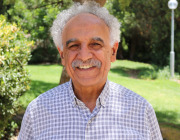Abstract:
In this paper, we characterize the significance of the Moslem religion for coping with loss and bereavement, with an in-depth, semi-structured interview study conducted among twelve Palestinian families in Israel after the deaths of their sons, killed during the October 2000 events. Results revealed five religious coping patterns that assisted the families to cope with the death of their sons, who are perceived by them, based on Islamic beliefs, as Shahids (martyrs). These are: The religious meaning of Shahid; Attributing death to an external power; The Koran as a reservoir; The victim as living Shahid; and The concept of God the merciful. Implications of the results for intervention as well as for future research are discussed.
